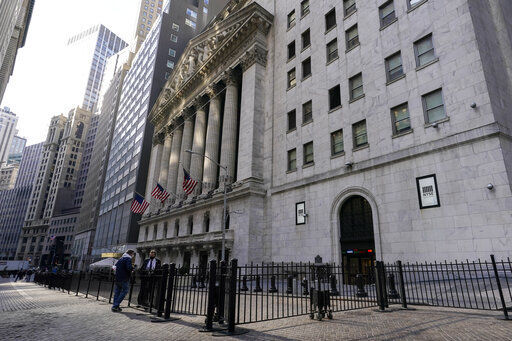Stocks shifted between small gains and losses in morning trading on Wall Street today in a muted start to to the week.
The S&P 500 fell 0.1% as of 9:23 a.m. Central. The Dow Jones Industrial Average fell 123 points, or 0.4%, to 34,741 and the Nasdaq rose 0.2%.
Retailers and other companies that rely on direct consumer spending gained ground. Tesla rose 5.4% after announcing that it is considering another stock split. Amazon rose 0,7%.
Energy stocks had some of the biggest losses as crude oil prices fell sharply. Exxon Mobil fell 2.8%.
U.S. crude oil slumped 7.2% and Brent crude, the international standard, fell 6.6%. The drop follows news that China began its most extensive coronavirus lockdown in two years to conduct mass testing and control a growing outbreak in Shanghai. That could put a dent in global demand for energy.
Oil prices remain volatile amid the backdrop of Russia’s invasion of Ukraine. The United Arab Emirates’ energy minister doubled down today on an oil alliance with Russia, saying that nation, with its 10 million barrels of oil a day, is an important member of the global OPEC+ energy alliance.
Ukraine and Russia are due to hold talks early this week in Turkey.
Oil prices are up more than 40% globally over concerns about tighter supplies as demand remains strong. Higher oil prices are also raising concerns that already persistently high inflation could be worsened, further threatening global economic growth.
Markets in Europe were mostly higher, while markets in Asia were mixed.
Russian shares slumped as its stock market resumed trading of all companies after a monthlong halt following the invasion of Ukraine. The last full trading session in Moscow was on Feb. 25, a day after the index tumbled by a third after President Vladimir Putin ordered the invasion.
Bond yields eased back after shooting higher this month. The yield on the 10-year Treasury fell to 2.44% from 2.49% late Friday. Bond yields have been rising as Wall Street prepares for higher interest rates. The Federal Reserve has already announced a 0.25% hike of its key benchmark interest rate and is prepared to continue raising rates to help temper the impacts of rising inflation.
Investors will get more updates this week on just how much inflation is hurting consumers and businesses. The Conference Board will release its consumer confidence index for March on Tuesday. The Commerce Department will release its February report for personal income and spending on Thursday and the Labor Department will release its employment report for March on Friday.


